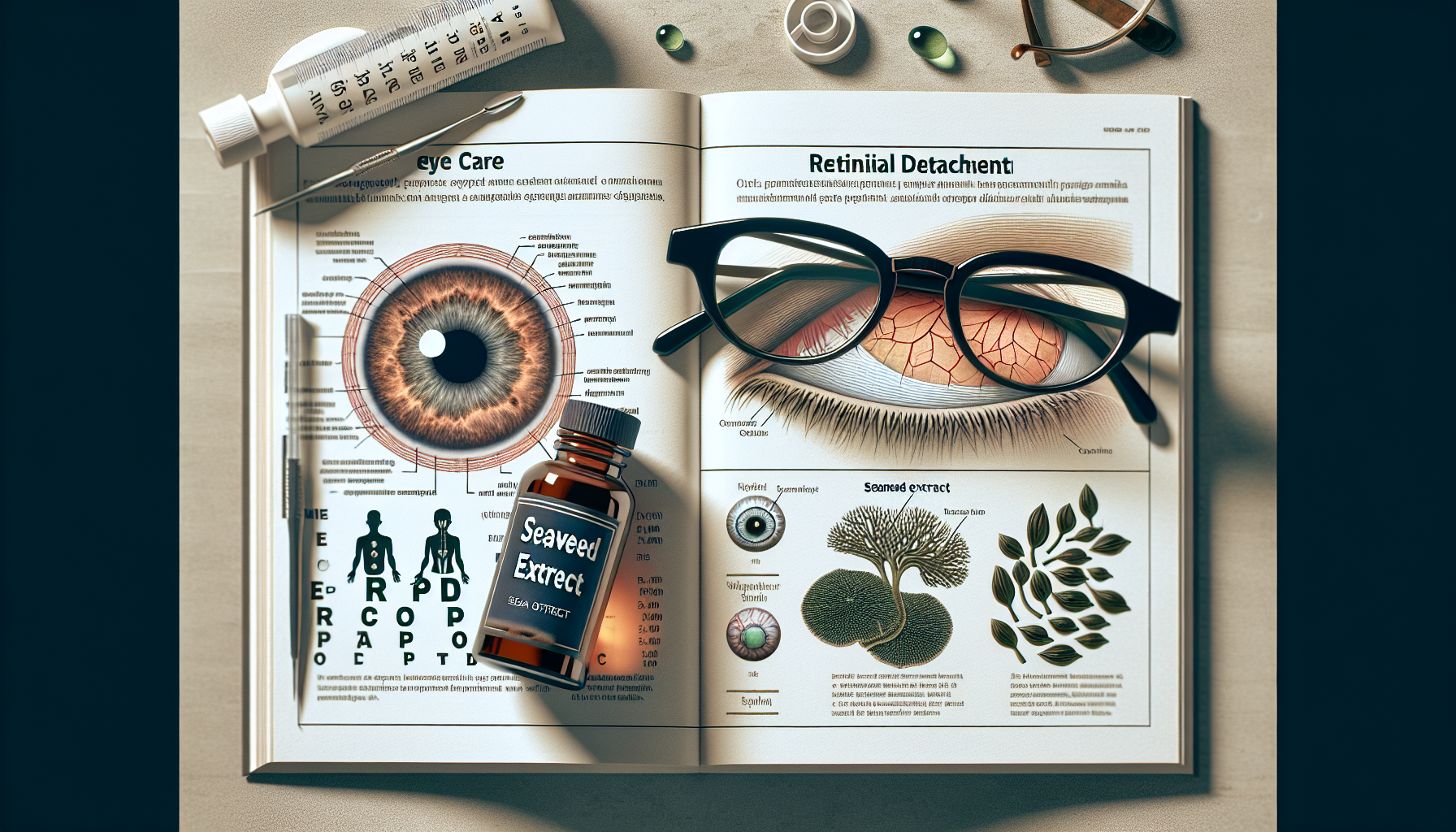In Korea, there’s an unusual superstition: eating seaweed soup before an exam could lead to poor performance. This belief stems from the slippery texture of seaweed, which is thought to metaphorically trigger a “slip” during the test. The source of this characteristic slipperiness is alginate, a substance found in certain seaweeds. Intriguingly, alginate has become the focus of a recent study investigating its potential role in treating retinal detachment.
A team of scientists led by Professor Hyung Joon Cha from the Department of Chemical Engineering and the School of Convergence Science and Technology, along with Dr. Geunho Choi from the Department of Chemical Engineering at Pohang University of Science and Technology (POSTECH), and Professors Woo Jin Jeong, Woo Chan Park, and Seoung Hyun An from the Dong-A University Hospital’s Department of Ophthalmology, have developed an innovative solution for treating retinal detachment using an artificial vitreous body derived from a natural carbohydrate in algae. These exciting findings were reported in Biomaterials, a leading Elsevier-published journal.
The vitreous body is a gelatinous substance filling the space between the lens and retina, helping to maintain the eye’s structural stability. When the retina separates from the inner eye wall, it can drift into this vitreous cavity, causing detachment and potentially resulting in blindness if left untreated. Traditional treatment involves removing the vitreous body and replacing it with medical intraocular fillers such as expandable gas or silicone oil, but this procedure has been linked to various side effects.
In a bid to overcome these limitations, the research team turned to alginate, the carbohydrate found in algae. Known for its viscid nature, alginate is commonly used in food and medicine sectors. The team used a modified version of this substance to create a hydrogel that could potentially replace the vitreous body.
This hydrogel mimics the biocompatibility and optical properties of the vitreous body, preserving a patient’s vision after surgery. Its unique viscoelasticity regulates the eye’s internal fluid dynamics, helping to stabilise the retina and eliminate air bubbles.
To test the effectiveness and stability of the hydrogel, the team used rabbit eyes, which share structural, size, and physiological similarities with human eyes. Implantation of the hydrogel in these models successfully prevented retinal detachment recurrence and maintained stability over a prolonged period without any adverse effects.
Professor Cha, the study’s lead, noted a growing incidence of retinal detachment, particularly among young individuals. He stated, “Retinal detachment is closely linked with severe myopia, and its prevalence has risen by 50% in Korea between 2017 and 2022.” He assured of the team’s dedication to refine the technology through continual research, making the hydrogel a practical solution in real-world ophthalmology.
Professor Jeong from Dong-A University Hospital mentioned the growing global market for intraocular fillers, expanding at a 3% annual rate. He expressed his confidence that the newly developed hydrogel would be beneficial in upcoming vitreoretinal surgeries.
The research project received funding from the Korea Medical Device Development Fund and the Mid-Career Research Program of the National Research Foundation of Korea.

Comments are closed for this post.